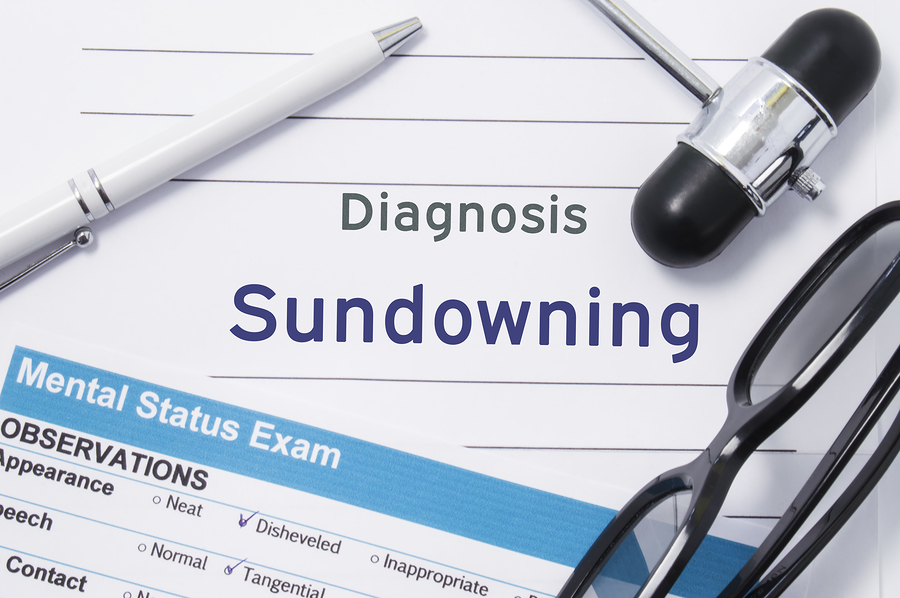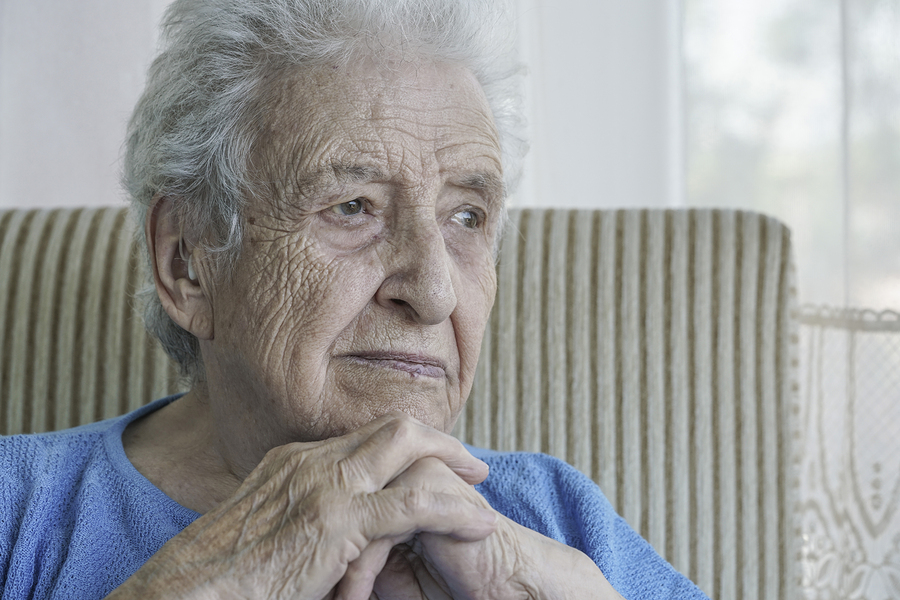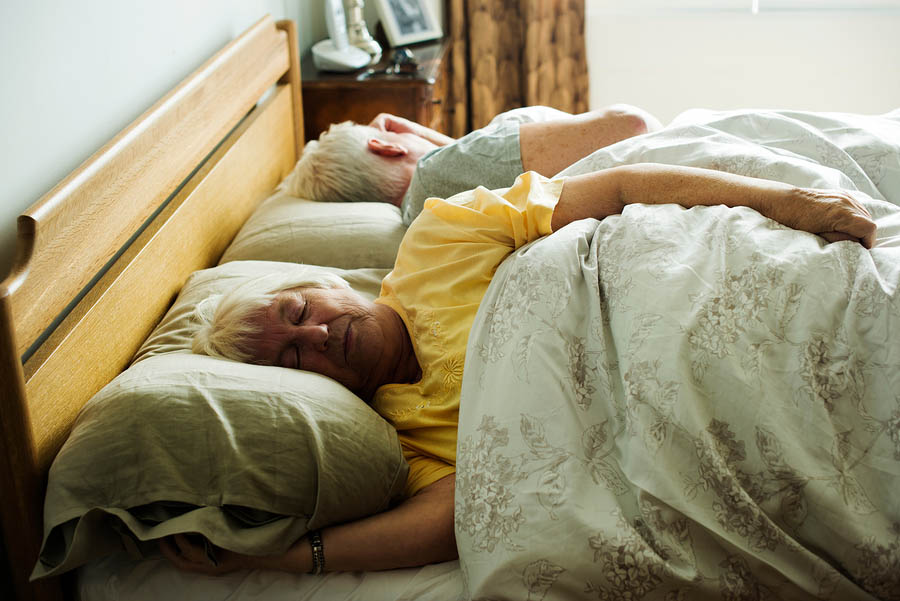Sundowners in Elderly Adults
Category:

Being a caregiver for an elderly person is an admirable and fulfilling task, but it is not an easy task. The elderly struggle with many challenges to their physical and mental well-being. These struggles could include anything from Parkinson’s to Alzheimer’s. One lesser-known challenge that caregivers could encounter while spending time with the elderly is sundowners. What is sundowners in the elderly? Dr. Graff-Radford from the Mayo Clinic tells us, “the term “sundowning” refers to a state of confusion occurring in the late afternoon and spanning into the night.” Sundowners can be connected to Alzheimer’s and dementia, but not always. What causes sundowners in the elderly is not precisely known, but there are signs you can watch for and things you can do to help ease the condition in the elderly who may suffer from it.
What are the Early Signs of Sundowners?
Sundowners in the elderly generally occurs around dusk, as the light outside is fading from day to night. Symptoms get worse as the night goes on, but tend to be gone by morning. When an elderly person is experiencing sundowners, they may be:
- Agitated
- Restless
- Confused
- Disoriented
- Demanding
- Suspicious
- Yelling
- Pacing
- Having mood swings
- Hearing or seeing things that aren’t there
Download Free Home Safety Guide
What Causes Sundowners in the Elderly?
Scientists and doctors do not know the exact cause of sundowners. Some believe it is connected to dementia, and the part of the brain that controls the internal clock becomes confused and does not function properly. But there are other, more likely causes. The elderly person could be:
- Tired
- Hungry or thirsty
- Depressed
- In pain
- Bored
- Having difficulty sleeping
Sundowners in elderly adults could also be caused by other events such as:
- Hospitalization, or moving to a new unfamiliar place
- Medications wearing off as the day progresses
- The transition from day to night, reminding a person of when they were younger, and expecting a spouse or children to come home
- Hormonal imbalances
Sundowners syndrome in the elderly can occur after surgery, and seniors who suffer from Alzheimer’s often experience symptoms of sundowners.
Is Sundowners Syndrome Temporary or Permanent?
Technically sundowners syndrome is temporary. It lasts for a few hours in the evening (though it may feel longer for caregivers watching a loved one struggle) but it is gone in the morning, almost as if the brain has reset itself during the night. Much of Sundowners Syndrome in the elderly is still a mystery, but we do know when connected with Alzheimer’s, “Sundowning symptoms peak during the middle stages of the disease and, in a cruel irony, ease as the disease gets worse.” So while the condition itself is temporary each day, it unfortunately is not a good sign for your elderly loved one’s mental capacity going forward.
Treatment for Sundowning in Elderly Adults
Because the cause of senior sundown syndrome is largely unknown, it is difficult to determine treatment options. Doctors and other experts in the caregiving field do offer some recommendations to help both the senior and caregiver cope. When a senior suffering from sundowners becomes agitated or stressed, reassurance and distraction will be the most helpful tools in your toolbox. Reassure the elderly person that you are there and everything is fine. You can play some music for them to listen to, or turn on their favorite TV show. “When you focus on reducing demands, what you’re doing is reducing pressure on the brain to respond to the environment,” says Dr. Sadavoy in the article The Mystery of Sundowning. In the same article, an excellent resource for a caregiver of a person who suffers from sundowners, Dr. Sadavoy explains that the senior should not be expected to do an independent task. Any sort of stress, so to speak, on the brain will exacerbate the sundowners.
Some other ways to help manage sundowners are:
- Keep a daily routine. Schedule appointments, visits and other activities in the morning when the elderly person will feel their best.
- Limit or avoid things that affect sleep, like smoking, alcohol, and caffeine.
- Avoid naps or exercise less than four hours before bedtime.
- Close curtains and turn on lights. Shadows can aggravate a person suffering from sundowners and make the condition worse.
- Keep things calm in the evening. Play cards, listen to music, or take a short walk to wind down.
- Eat a large lunch and small dinner to assist with helping the body wind down and get ready for sleep.
Dealing with sundowners is never easy for the senior who is suffering or the caregiver who must watch. Do not forget to be a good caregiver for another, you must take care of yourself first. Be sure you are getting enough rest. Ask a friend or relative to “cover” for you for a night so you can relax. Take a nap in the afternoon if you can, and don’t forget you can always seek professional in-home care help.
As far as science has come, there are still many things we don’t understand about the wonderful, mysterious organ that is the human brain. Sundowners and other diseases of the mind from which the elderly suffer are no exception. Though the cause of sundowners can’t quite be explained or cured yet, hopefully this article has provided you with enough insight to relieve some of your stress and help you feel more in control of your difficult situation.
Subscribe
Date: March 24, 2020
Category:

